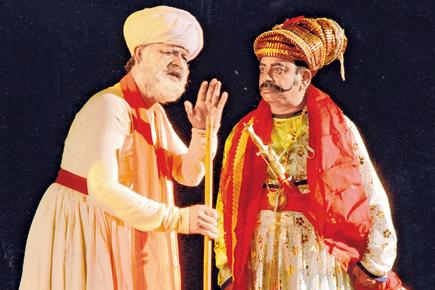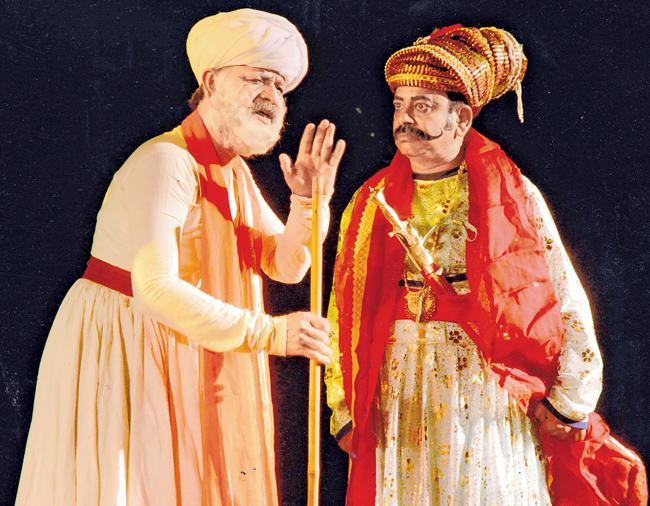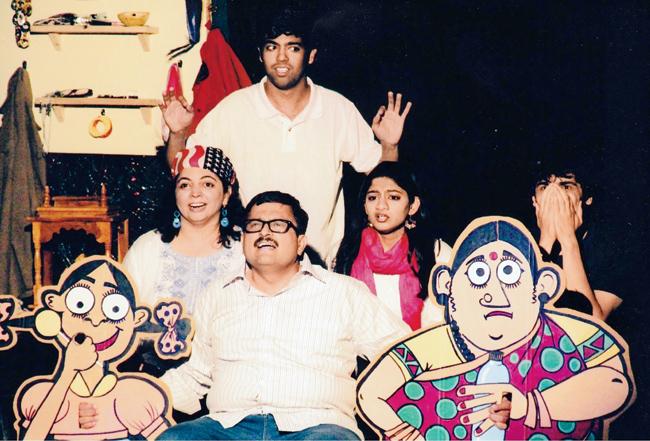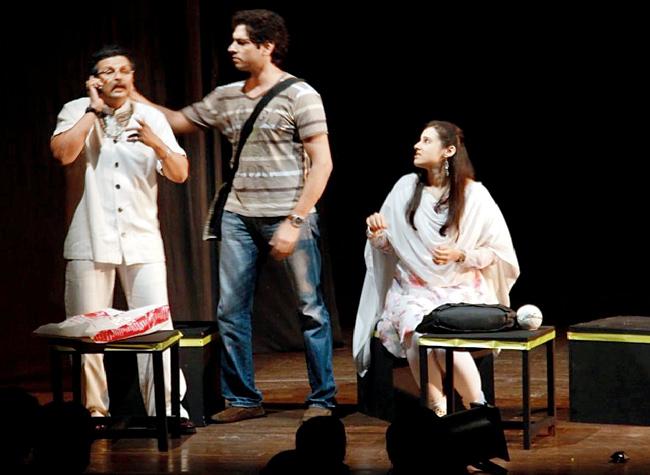An array of regional plays that span seven languages is going to be showcased as part of the 18th Nehru Centre Theatre Festival. With theatre doyens like Ram Gopal Bajaj and Arjun Deo Charan staging their productions, the city theatregoer is in for a dramatic treat

Satyagraha
The 18th Nehru Centre Theatre Festival boasts of an enviable ensemble of power-packed plays directed by veteran theatre directors such as Arjun Deo Charan, Kewal Dhaliwal, Nadira Zaheer Babbar and Ram Gopal Bajaj, to name a few. Conceived as a retrospect of theatre practices in India, this edition of the eight-day festival is dedicated to a respected Marathi theatre personality, the late Anand Modak.

Satyagraha narrates the dharna that was done by the royal poets in Rajasthan in 1643
“We look out for different forms of theatre as practised across the country, including forms like sangeet natak and nautanki, as well as for plays produced by various groups,” says Dr LA Kazi, director (culture), Nehru Centre, who mentions that the festival showcases the art form in seven languages including Marathi, Gujarati, Kannada and others.
ADVERTISEMENT

A performance still from the Marathi play, Du and Mee
Kazi’s play Swargiya Ghotala will be the curtain raiser for the festival. The play utilises the art form of Marathi sangeet natak, which the thespian explains is one of the oldest forms of theatre that has been practised in India, since the last 150 years. “It is an ensemble of Classical music and drama woven with mythological and social cause” as the play brings the seventh century play, Bhagwadajukkam, written by Bodhayana to life. In Kazi’s opinion, his own play as well as Satyagraha are the most innovative in form and content. Coincidentally, Charan’s play Satyagraha will mark the finale of the festival.

The play, Yeh Hai Bombay Meri Jaan
Another Satyagraha
Deo Charan, who is a Sangeet Natak Akademi as well as Sahitya Akademi award-winner will be coming to the city to stage his five-year-old play that precedes the better-known concept of Satyagraha popularised by Mahatma Gandhi. Apprising the plot of the play, he shares, “In 1643, 185 poets sacrificed themselves to protest against King Chandrasen’s younger brother, Uday Singh who had allied himself with Emperor Akbar, as his father King Maldev had crowned Chandrasen as king. It was only after Maldev’s death that the Uday Singh usurped the throne from his brother. By then, the charans or royal poets requested King Uday Singh to fight for autonomy against Emperor Akbar, which he refused to do. To keep the honour of the land, the poets sacrificed their lives in opposition.”
The interesting aspect of the play, as per the director, is the understanding of the ethos of the charans. A surname he himself carries on, as he comes from the same lineage. He explains that for those poets, construction of panegyrics (verses praising someone) were not meant to please the king, but to espouse ideal values that should be there in a human being.
“Though they were poets of the court, they never recited poetry for selfish gains,” explains the 60-year-old Rajasthani poet, critic, translator and dramatist, who considers the legendary charan Aamra to be his ancestor.
Of Mumbai and Manto
Nadira Zaheer Babbar’s critically-acclaimed play Yeh Hai Bombay Meri Jaan is another important play to watch out for. She explains that the play realistically chronicles the struggles and dilemmas of myriad characters, from struggling artistes to dabbawalas in the megalopolitan city of ours.
Last but not the least, for fans of Saadat Hasan Manto, Amritsar-based Kewal Dhaliwal’s production Ik Si Manto is a must-watch. “I have constructed Manto’s character who had stayed in Amritsar and was born in Samrala, Punjab.
Studying his life, stories and court cases, I have him juxtaposed with his three daughters who act as narrators,” explains the National School of Drama graduate who has also staged the play in front of his actual daughters. Dhaliwal says that Partition is an undeniable part of Manto’s story as he concludes with, “You can divide the nation but not Manto.”
Till: September 23, 2.30 pm and 7 pm
At: Dr E Moses Marg, Mahalaxmi, Worli.
Call: 24920482
 Subscribe today by clicking the link and stay updated with the latest news!" Click here!
Subscribe today by clicking the link and stay updated with the latest news!" Click here!







